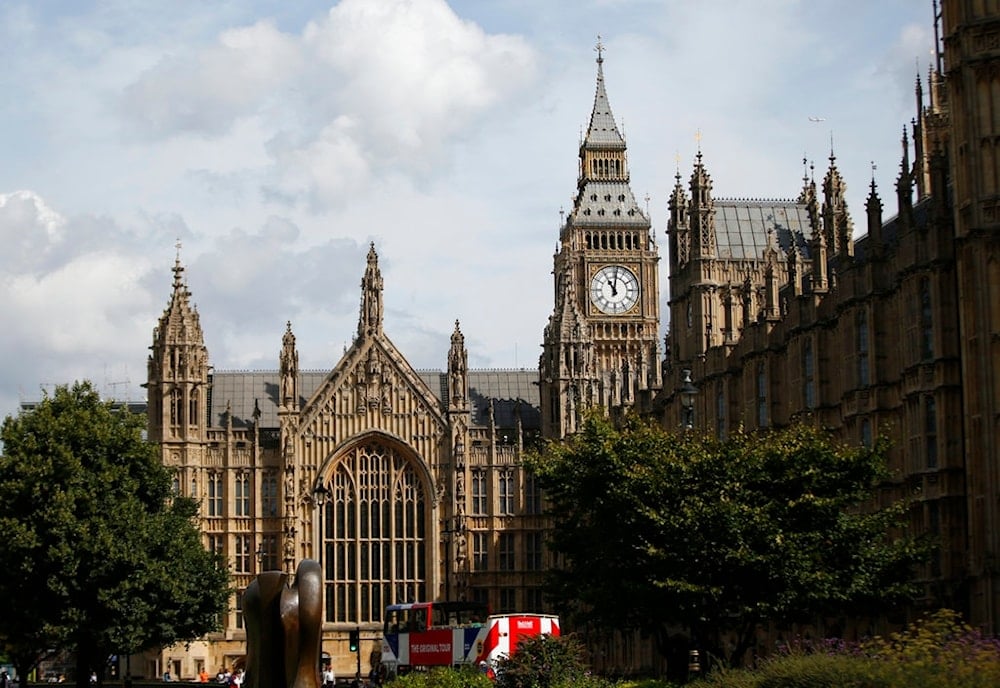UK claims China tried to recruit individuals with access to Parliament
The UK has warned that Chinese intelligence officers are attempting to recruit individuals with access to Parliament, escalating tensions as London accuses Beijing of covert political interference and China denies the allegations.
-

A general view of Palace of Westminster and the Queen Elizabeth Tower which contains the bell known as 'Big Ben' in London, Monday, Aug. 14, 2017 (AP)
UK authorities have raised new concerns over alleged Chinese intelligence activity targeting the British political establishment, the latest escalation in a long-running debate over Beijing’s influence and espionage operations in the United Kingdom.
Security Minister Dan Jarvis told Parliament on Tuesday that MI5 has alerted officials to attempts by Beijing-linked operatives to approach individuals with access to confidential government and parliamentary information.
Speaking during a parliamentary session, Jarvis said UK agencies believe Chinese intelligence officers are working through front companies and professional intermediaries in what officials describe as increasingly sophisticated recruitment efforts.
"Our intelligence agencies have warned that China is attempting to recruit and cultivate individuals with access to sensitive information about parliament and the UK government. MI5 have stated that this activity is being carried out by a group of Chinese intelligence officers often masked through the use of cover companies or external headhunters," he told MPs.
Intelligence Flags China
The warning marks the latest chapter in the UK’s steadily intensifying posture toward China. Over the last decade, MI5 and other security bodies have repeatedly stressed that Chinese intelligence operations have expanded from cyber intrusions and intellectual property theft to political interference, recruitment attempts, and influence campaigns.
In 2022, MI5 issued an unprecedented parliamentary interference alert naming a UK-based lawyer accused of working with the Chinese Communist Party’s United Front Work Department. The UK has since passed wide-ranging national security legislation, including the 2023 National Security Act and the Foreign Influence Registration Scheme, aimed at curbing covert foreign activity.
Jarvis added that the government would respond firmly to what it sees as foreign meddling, stressing that ministers will not overlook actions aimed at influencing the country's political system. He described the efforts as "covert and calculated" attempts to interfere with the UK’s internal affairs.
Espionage Warning
According to a message circulated in Westminster and obtained by Sky News, MI5 warned MPs about two individuals described as recruitment headhunters allegedly acting on behalf of Chinese intelligence services. The notice said, "Their aim is to collect information and lay the groundwork for long-term relationships, using professional networking sites, recruitment agents and consultants acting on their behalf."
The alert is part of a broader shift in UK policy that has already seen Chinese telecom giant Huawei banned from the 5G network, Chinese-made surveillance cameras removed from sensitive government sites, and closer scrutiny applied to academic partnerships, technology investments, and political donations.
Intelligence chiefs have also publicly warned that Beijing’s use of professional networking platforms such as LinkedIn represents one of the most persistent avenues for targeting government officials.
Parliament Threat
The development follows earlier reporting by The Telegraph that House of Commons Speaker Lindsay Hoyle has been weighing whether to block representatives of Chinese-linked organisations from entering parliamentary buildings.
That consideration emerged after the latest espionage scandal involving two Britons, Christopher Berry and Christopher Cash, who are accused of sharing sensitive material relating to the Conservative Party with Chinese officials.
Although the case against the two men has faced legal complications, it has nonetheless intensified political debate over whether the UK has adequate tools to counter modern state-backed espionage.
MI5 has repeatedly described China as presenting "the most significant long-term state-based threat" to the country, and senior officials argue that recruitment attempts targeting Parliament fit into a broader pattern of strategic intelligence gathering.
China Rebuffs
The issue adds to a series of tensions between London and Beijing, with UK intelligence repeatedly warning of sustained espionage risks originating from China. In response to the current alert, the Chinese Embassy in London accused the UK of engaging in "pure fabrication and malicious slander."
A spokesperson said the UK side was urged to "immediately stop this self-staged charade of false accusations and self-aggrandisement, and stop going further down the wrong path of undermining China-UK relations."
Read more: UK bans Chinese-made surveillance cameras at 'sensitive' sites

 4 Min Read
4 Min Read










